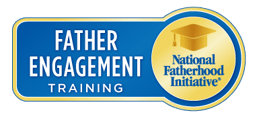How to Effectively Engage Fathers: The 4th Competency
3 min read
Date Published: 06/23/2015
Last Updated: 11/10/2021
National Fatherhood Initiative Blog / Latest Articles
3 min read
Mom and dad don’t get along. Maybe they hate each other. Perhaps there is, unfortunately, a history of abuse in the relationship. Mom might not even realize that she restricts dad’s access to his children. Do any of these descriptions ring true in your work with fathers, mothers, families?

This post is the fourth in a weekly series in which I highlight the five core competencies you need to effectively engage fathers, and how you can develop each competency with NFI’s Father Engagement CertificateTM (FEC), an affordable on demand training that will help you develop those competencies.
Click here to read the post on the 1st competency: How to Create a Father-Friendly Organization
Click here to read the post on the 2nd competency: How to Design a Best Practice Fatherhood Program
Click here to read last week’s post on the 3rd competency: How to Think Like a Marketer
Involving Moms in Promoting Father Involvement
Our country has a remarkable structure that addresses the health and well-being of women, mothers, and children. While there are certainly issues with that structure and areas for improvement, there’s no debate about the lack of a structure that addresses the well-being of men and fathers.
Unfortunately, fathers are most often the parent left out of the parenting equation when organizations implement parenting and family-strengthening programs. To be fair, fathers are often reluctant to avail themselves of these programs; nevertheless, organizations typically don’t make a concerted effort to reach them. Consequently, “parent” is a code word for “mom” from many fathers’ perspective. Organizations fail to speak directly to the needs and wants of fathers.
Fatherhood programs can’t make the same mistake—that is, leave moms out of the equation when it comes to implementing a fatherhood program. But wait, you might say: What do moms have to do with implementing a fatherhood program? A lot.
Mothers are often the gatekeepers when it comes to fathers’ access to their children. Mothers can facilitate or hinder fathers’ involvement, particularly when fathers are non-residential or non-custodial. Even when mothers and fathers are romantically involved and living in the same home, mothers can unconsciously and unnecessarily restrict fathers’ access to their children.
That’s why it’s vital that you learn how to go the extra mile and build the fourth competency in effectively engaging fathers in Session 4 of the Father Engagement Certificate training: How to Work with Moms to Encourage Father Involvement.
This session covers the “why” and “how” to involving moms in encouraging father involvement. Learn about the “Five Aspects of Family Life” associated with father involvement, and how to use “intensity levels” to assess how you should approach involving moms. Also learn why training female staff to more effectively engage fathers is so important, and about a free resource from NFI that will help you train female staff to more effectively engage fathers.

Don’t delay. Click here to start the process of earning your Father Engagement Certificate™.
How much do you know about the impact of mothers in ability of the fathers you serve to be as involved as possible in the lives of their children?
Do you know the typical behaviors associated with “restrictive gatekeeping?”
***
Date Published: 06/23/2015
Last Updated: 11/10/2021
Download this free guide for a proven 7-step roadmap—from making the case and securing funding for your program, to launching and measuring real results!


Train Your Staff
Fatherhood Programs
Fatherhood Data
© 2026 National Fatherhood Initiative®. All rights reserved.